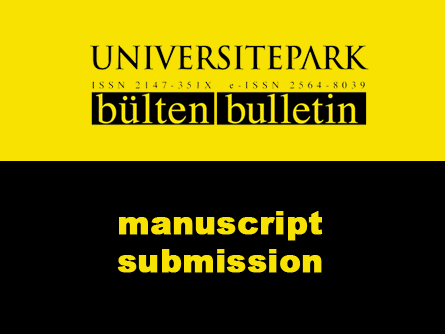| 1 |
An Overview of International Migration Data from Vietnam pp. 7-27 | Published Online: December 2022 | DOI: 10.22521/unibulletin.2022.112.1 Chi Hong Nguyen
Abstract
Materials/methods – Through synthesis of information retrieved from multiple secondary sources, this article presents general data on popular forms of Vietnamese international migration which include labor export programs, family streams, human trafficking, transnational marriages, and studying abroad.
Keywords: international migration data from Vietnam, labor migration, transnational marriage, family migration, skilled migration, international student mobility |
||
| 2 |
Assessing the Quality of Arguments in Students’ Mathematical Problem Solving pp. 28-40 | Published Online: December 2022 | DOI: 10.22521/unibulletin.2022.112.2 Hendra Kartika, Mega Teguh Budiarto
Abstract
Keywords: argumentation, argument, CER model, middle school, Polya method, problem solving |
||
| 3 |
21st Century Teacher Skills and Their Contribution to the Educational System According to Expert and Teacher Views pp. 41-61 | Published Online: December 2022 | DOI: 10.22521/unibulletin.2022.112.3 Serkan Ünsal, Cennet Tandırcı
Abstract
Conclusion – Education plays a crucial role in shaping the future generations. However, fulfillment of these roles is only possible through teachers who first acquire and master these 21st century skills, and then learn to impart these skills to their current and future students. Keywords: skills, 21st century skills, teacher skills |
||
| 4 |
Awareness and Implementation of Education for Sustainable Development in Technical Teacher Education in Tertiary Institutions, Rivers State, Nigeria pp. 62-79 | Published Online: December 2022 | DOI: 10.22521/unibulletin.2022.112.4 Legborsi Nwineh
Abstract Background/purpose – This study investigated the level of awareness and implementation of elements of education for sustainable development in technical teacher education programs in tertiary institutions in Rivers State, Nigeria. Materials/methods – Descriptive survey design was employed to collect data using a validated questionnaire to elicit both closed- and open-ended responses. The study sample consisted of 117 participants including 29 teachers and 88 final-year students purposively selected from three tertiary institutions that offer a technical teacher education program in Rivers State, Nigeria. Data were analyzed using frequency counts and percentages and the results presented using charts and a table. Results – The result showed a minimal level of awareness of the concept of sustainable development among the study participants. Also, elements of sustainable development were notably integrated into the technical education curriculum, albeit sparingly. Furthermore, the result showed that integration of elements for sustainable development in the process of preparing students of technical teacher education were practiced rarely and occasionally. Conclusion – A low level of awareness and implementation was revealed among the study group regarding the concept of education for sustainable development, and that this could negatively impact the achievement of sustainable development goals. Keywords: sustainable development, education for sustainable development, technical and vocational education, awareness, implementation of sustainable development. |
||
| 5 |
Teacher Competencies In Virtual Learning: A Brief of Students’ Voice pp. 80-92 | Published Online: December 2022 | DOI: 10.22521/unibulletin.2022.112.5 Suryawahyuni Latief, Dedek Kusnadi, Mulyadi Mulyadi
Abstract
Keywords: Jambi, student’s voice, teacher competencies, virtual learning, managing virtual learning |
||
| 6 |
Examining the status of Flagship Universities in Africa pp. 93-120 | Published Online: December 2022 | DOI: 10.22521/unibulletin.2022.112.6 Goodluck Jacob Moshi
Abstract
Results – The study revealed that, between 2015 and 2017, the University of Cape Town, South Africa, maintained a higher ARWU status than the American University in Cairo, Egypt. The next-highest ranked university was South Africa’s University of Witwatersrand. Regardless of each university’s respective long history, the findings further highlight the universities’ research innovations and achievements over time. The results that emerged from this study were that most of Africa’s national elite universities strive to attract the best caliber of candidates from the competitive global academic scene, and that few African universities have achieved high global rankings. Despite innovations, Africa has produced little research, and has the lowest higher education investment level. This article suggests that governments in African countries should increase the level of research support, improve funding initiatives, and facilitate universities’ research policies. These efforts would have the potential to boost academic reputations of African universities as well as curriculum innovation.
Keywords: flagship universities, global university ranking, quality research, higher education, Africa |
UNIBULLETIN News!
► New issue coming soon! (Volume 13 Issue 1, 2024)
► Call for Papers
UNIBULLETIN is calling for submissions. Authors are invited to submit papers from the all fields of the Education (General) and Social Sciences (General) in the international context. All submissions should be presented only in English.
